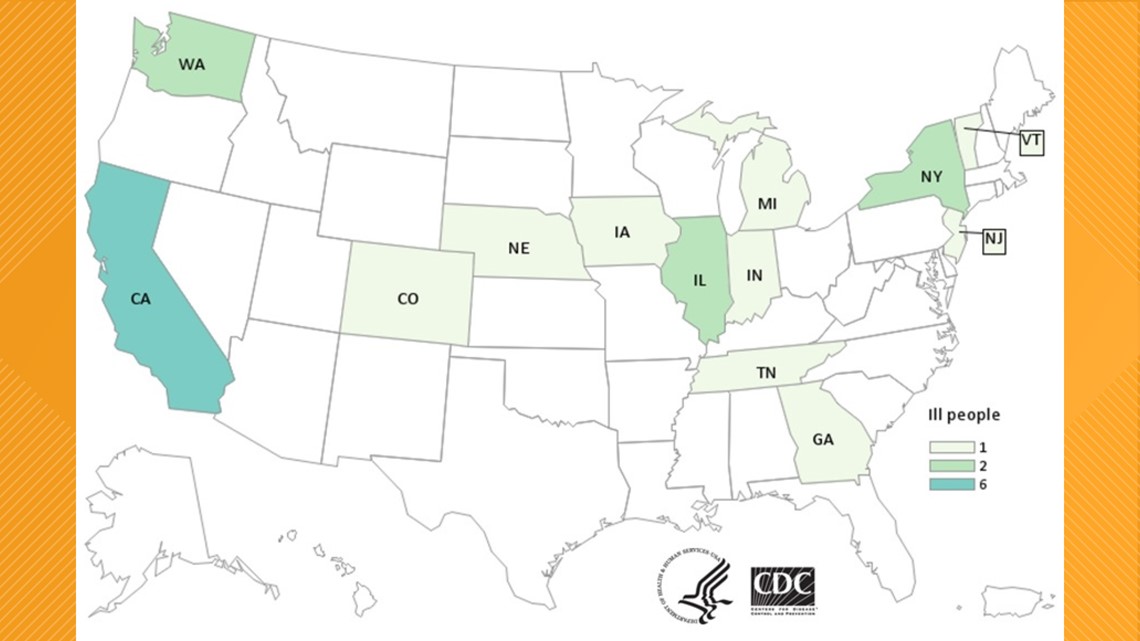ATLANTA — A total of 21 people have been infected from a strain of salmonella that the Centers for Disease Control and Prevention said is likely linked to contact with pet turtles.
The cases stretch across 13 states and includes one person in Georgia. So far, no deaths have been reported, but seven people have been hospitalized.
According to the CDC, turtles can carry salmonella germs in their waste, while appearing healthy and clean. The germs can spread easily to their bodies and can cause people to get sick after they touch one or anything in their habitats.
Most people infected with salmonella develop diarrhea, fever, and stomach cramps 12 to 72 hours after being exposed, the CDC reports. The sickness can last four to seven days.
Many recover without treatment. However, some cases may be so severe that the patient needs to be hospitalized.
The CDC said they believe these cases are linked to pet turtles based on some of the evidence they've collected and interviews they've conducted of those who have become sick.
Among the 13 states with confirmed cases, California has the most, with six people who have fallen ill. Illinois, New York and Washington each have two cases. The rest of the states impacted by the outbreak each have one ill person.


Here are some tips the CDC gives to pet turtle owners:
- Wash your hands thoroughly. Adults should supervise handwashing of children.
- Play safely. Health officials say you should not kiss or snuggle turtles because you can spread germs to your face and mouth.
- Clean habitats, toys, and pet supplies outside the house when possible. Avoid cleaning these items in the kitchen or any other location where food is prepared, served, or stored.
- Pick the right pet for you family. Children under 5 and adults 65 and older have weakened immune systems are at a greater risk for serious illness, the CDC said.
- Educate customers and employees. Pet stores, breeders, or others that sell or display turtles should provide educational materials.
Get more information on the CDC's investigation on its website.
MORE IN NEWS:

